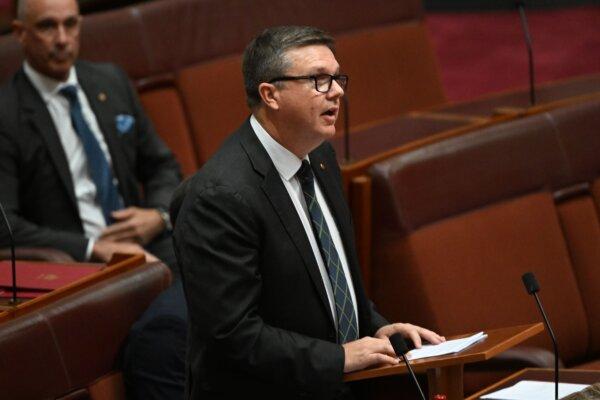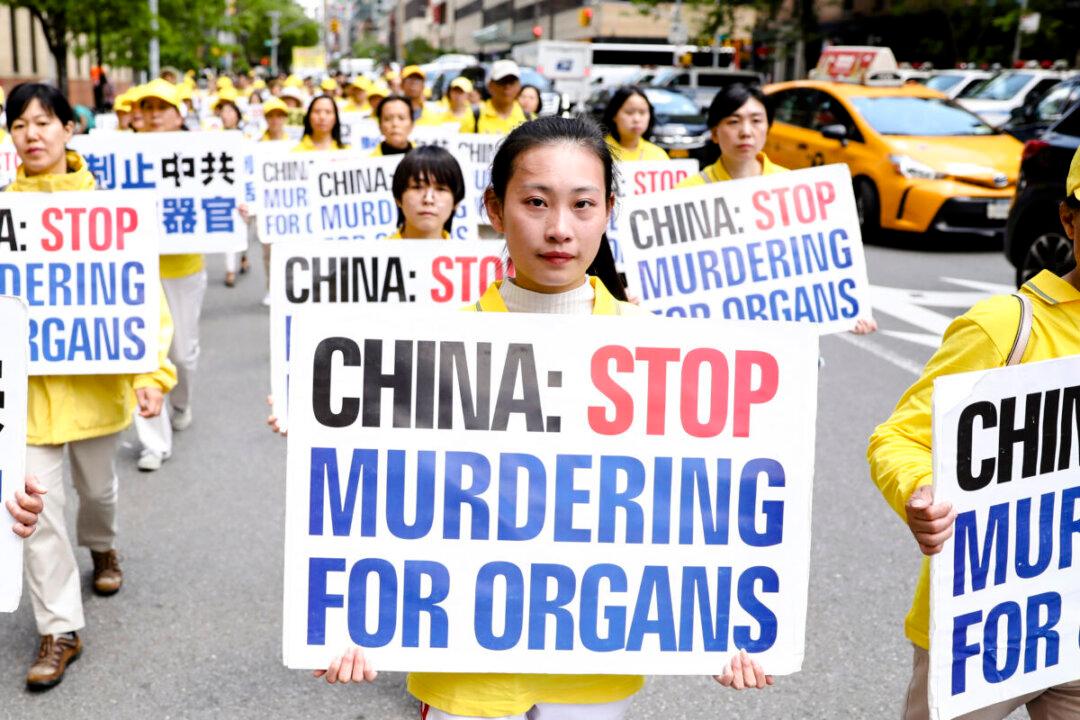Nationals Senator Ross Cadell has urged his colleagues in the Australian Senate to support a bill aimed at preventing people around the world from having their organs harvested for what he described as an “Alibaba of organ database.”
The senator voiced his support for the Migration Amendment (Overseas Organ Transplant Disclosure and Other Measures) Bill 2023, which seeks to strengthen Australia’s efforts in combating crimes related to illegal organ harvesting both domestically and internationally.
The legislation requires people entering or returning to Australia by sea or air to disclose on their arrival cards if they have received an organ transplant in the past five years.
They would also need to provide details about the country, town, city, and medical facility where they received the transplant.
Additionally, the migration minister will be required to report the number of people who have received organ transplants to both houses of the parliament.
The bill also amends the Migration Act 1958 to automatically fail a person’s character test, leading to visa cancellation, if the minister reasonably suspects involvement in human organ trafficking.
Cadell argued that the bill would cost the government almost nothing but provide a “massive chance of improvement” for the lives of many people around the world.
“This won’t change the world overnight, but it is a step,” he told the Senate during a debate in the upper house on Aug. 15.
Senator: Australia Must Act Against Organ Trafficking
Liberal Senator Dean Smith, who introduced the bill in 2023, emphasised its significance, highlighting Australia’s current lack of measures to combat organ trafficking.He pointed out that Australia lags behind other countries in tackling this type of crime.
“It [Australia] is silent in supporting global efforts to better disrupt and ideally eliminate from the globe that most heinous of crimes,” he said.
“This bill seeks to advance Australia’s mission to uphold and enhance human rights, both here and around the world.”
Evidence of Organ Harvesting
Senator Paul Scarr also supported the bill and raised the alarm about the gravity of the situation in China.He cited credible reports from United Nations (UN) human rights experts that minority groups, including Falun Gong practitioners, Uyghurs, Tibetans, Muslims, and Christians, are being forcibly subjected to blood tests and organ examinations without their consent in China.
“The results of the examinations are reportedly registered in a database of living organ sources that facilitates organ allocation,” Scarr said, referencing a UN press release from June 2021.
“Forced organ harvesting in China appears to be targeting specific ethnic, linguistic or religious minorities held in detention, often without being explained.
“According to the allegations received, the most common organs removed from the prisoners are reportedly hearts, kidneys, livers, corneas, and less commonly, parts of livers.”
Scarr also highlighted allegations that the practice of organ harvesting involves health professionals, including surgeons, anesthetists, and medical specialists.

Labor Opposes the Bill
Labor Senator Raff Ciccone, representing the government, stated that Labor could not support the bill due to “a range of issues and challenges” that could undermine its effectiveness.Ciccone argued that the self-declaration process might lead to inaccurate data, as individuals involved in organ trafficking are unlikely to provide truthful information.
He cited testimony from the human rights group Anti Slavery Australia during a senate inquiry, which suggested that people entering Australia would be unlikely to honestly answer the disclosure question if it could lead to them being investigated for a crime.
Ciccone also expressed concerns about the collection of personal medical information, suggesting that it should be collected by medical professionals in a clinical setting to ensure accuracy and protect patient privacy.
Furthermore, he stated that existing laws already empower the migration minister and departmental delegates with a range of cancellation powers to deal with visa holders who have character concerns.
Senator Responds to Labor’s Concerns
In response to Ciccone’s remarks, Senator Scarr said Australia has a moral obligation to address human rights abuses worldwide.“While some topics may cause discomfort, the moral obligation to raise these issues trump those concerns,” he said.
Scarr acknowledged Ciccone’s concern that passengers coming to Australia may not disclose the information honestly, but argued it was still worth collecting the data.
“That could well be the case people don’t declare appropriately on their incoming passenger card,” he said.
“But to the extent people do declare, the government will have the benefit of the data collected.”
Regarding medical information privacy, Scarr recognised the validity of Ciccone’s concern but he pointed out that the bill includes measures to protect privacy and ensure data is anonymised.
He also explained that the bill would require people to declare whether they had received an organ or benefited from a medical procedure on their incoming passenger card.
“If they don’t do that, it’s an added point of pressure which can be used to analyse whether or not their visa or entry to Australia should be prevented on character grounds,” he said.







